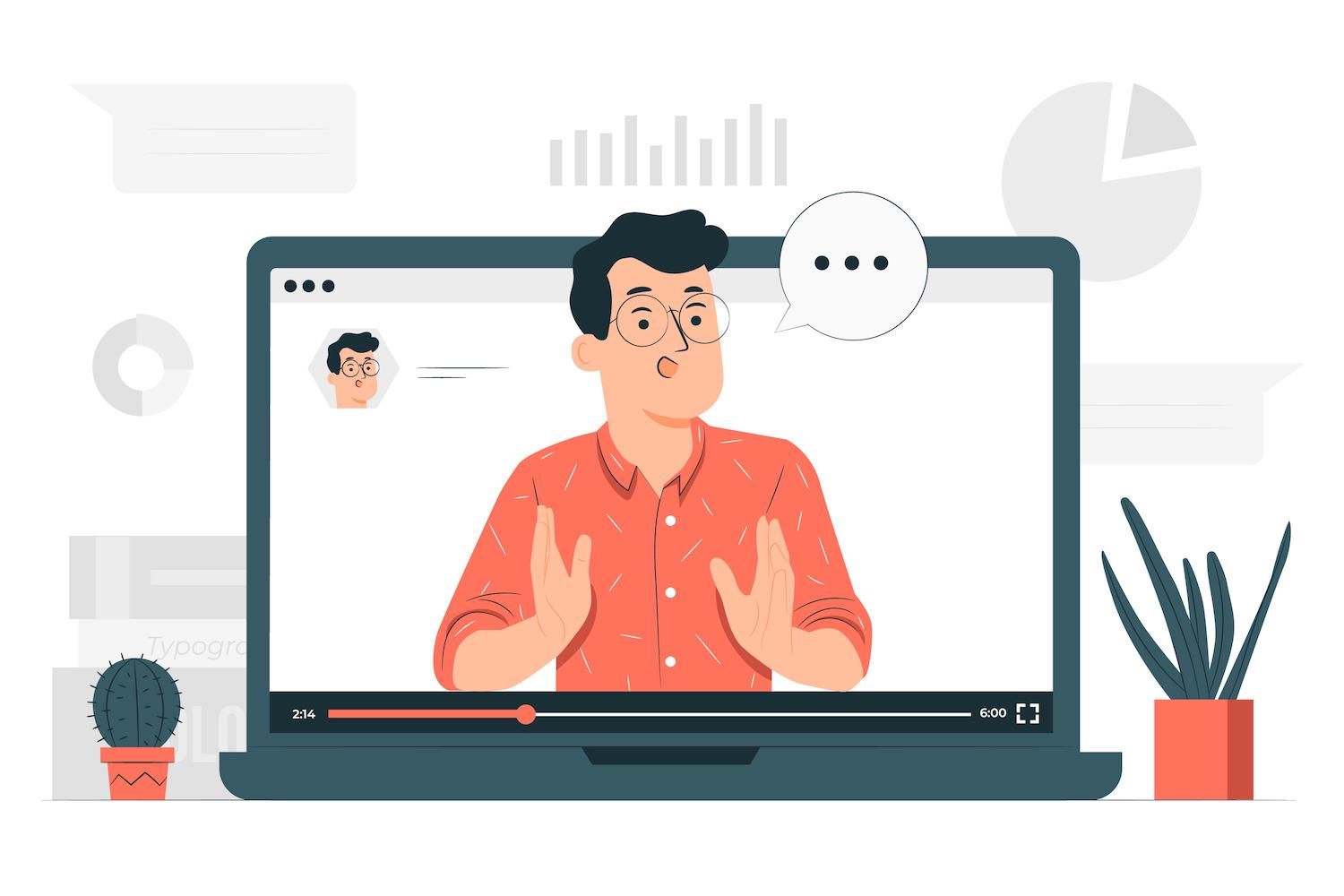How to Use Link Building to Increase Traffic to your Website
In this blog I'll be able to show you how you can use a popular SEO technique to improve the search engine ranking of your course website. It's known as link building, and when done properly, it can aid in attracting a flood of potential customers to your online courses.
The importance of building links in SEO
You've completed some research and you've got an idea of what keywords you'd like your course to be ranked for. You might have even written blogs that target your top keywords, but you're struggling to get your website to appear on search results. What's wrong with it?
It could be hyperlinks
Links are among the main ranking factors that are considered by the search engines. It is not solely the amount of hyperlinks that is important as well as the quality of those links and whether they're "followed" (the website instructs Google to consider the link in consideration for purposes of ranking).
But, Google does not specify the value of a hyperlink from each website, or how many links your site is able to get. How can you benefit from this ranking factor if Google tells you so little about it or what it can mean for each website? There are a number of websites that can help you out. My personal favorite one is Moz , a tool that integrates a variety of SEO tools into one package.
When it comes to link-building, and also the unknowns mentioned above one of the best aspects Moz does is to scan the web for any hyperlinks that point to your website (or your competitors' sites). It then uses this information, plus some algorithms as well as several other elements, to assign the Domain Authority value out of 100 to every site (this is a Moz measurement that is not a officially recognized Google measurement).
By looking at your website's Domain Authority, you can start to build a picture of the value your website is in relation to its quality and the number of your links. Since we cannot be sure of how the Google algorithm operates, we cannot be able to determine how accurate the scores that are assigned by Moz correspond to reality. That being said, Moz is still a helpful guide.
What are the reasons to share a part of your course to the public for free
Links are incredibly important in determining the position of your website. How do you convince that other websites to link to your website?
Others will hyperlink to your site if they believe that your site is worthwhile to visit. If you offer a useful piece of material for free, you are increasing the chance that other people will find your site interesting, therefore increasing the chance that other sites will link to you.
If you're a course provider then you are situated in a special position. You already have an abundance of informative content that people would like to read on. So, I would encourage you to share some of your material in exchange for a fee. Make a mini-course or create a handful of courses in your course available for a free trial, such as. By providing freely accessible content to everyone, you are more likely to get someone linking to you.
Choose a non-branded keyword to focus on
Before you start publishing free online content or asking others to hyperlink to yours, you'll need choose a particular search term you'd like to be ranked for. It should not be a branded keyword like 'cookery course' because these types of keywords are the ones that will bring new customers to your site.
When you've decided on which non-branded keywords are most effective for your business, then you're ready to implement your strategy to build links. To illustrate this blog, I'll continue to use the 'cookery course' as an illustration.
- URL: jackscooking.com/cookery-course
- Title Tag Title Tag
The next step is to decide what is going to go into the body of your website. When you place your free course on the page, you are providing incentives for other sites to connect to your page. Also, make sure that your course video is near the top of your page (if not the most prominent) to ensure that potential users can see your valuable content straight away.
A second thing to bear in mind is that Google gives a greater value to websites with more content in them. They believe that content on a website can be beneficial for users. While we've placed on the page a video, if it is on top of the page, Google can't crawl the content of that video, and therefore we must add more text to the webpage to show Google that the website is valuable.
According to my personal experience, it is useful to add between 1000 and 2000 words on the page. An easy method to accomplish this is by adding an audio transcript on the bottom of the page. If you require more text, add a little more on the advantages that come from following the course, including eating more healthily as well as having more fun in the kitchen.
Get links from websites with a high Domain Authority
In the first place, start by identifying websites that have a good Domain Authority that might be open to linking to you.
Do a Google search for 'cookery blogs Make a list of all the blogs with a Domain Authority above 30. Also, you can do a search on 'cookery course compar as well as other search phrases related to cookery classes to create a list of sites you find there too.
This is an image of one of the very first websites to show up in Google's search results for "cookery blogs", along with their Domain Authory (DA), thanks to Moz:

You can also use Moz to search for all sites that link to any website. One other strategy to use is to create an inventory of your cooking competition and then see the websites that are linked to these courses. If a website links to one cookery course the chances are it's going to consider the possibility of linking to different cookery classes, particularly if you sweeten the deal with a free cooking lesson. You could even enroll with Moz for a free 30-day trial, and then download all website link profiles that you'll need within that period.
After you've created an inventory of websites that might be open to linking to your site, conduct some research on the site and attempt to find the email address for the website's owner or blog director. Hunter is a great tool to do this.
To increase your chances of receiving a reply, I recommend sending a personalized email to every website's owner or manager of a blog. It is important to give them a reason to link to your website and in a manner that is logical for them and adds value to their readers.
Here's an example the kind of email you could send:
Hi [name]
I've been following your blog and it's got some great information! I'm really enjoying your article [insert the article here] ].
I recently created a free cooking lesson online that I think you will find helpful. Are you interested in exploring it, and perhaps writing a review of the course in your own blog (if you believe your visitors might like it as well)? )?
Please let me know if this interests you. I'd be happy to send you a lesson.
Thanks so much, Keep up the good work!
Jack Saville
It's not necessary to mention or ask about the link right away and to maintain the students' interest in your program. If they promote your program on their website They will most likely give you a link, most likely without having to ask. You could even arrange to give a discount or additional bonus for their readers.
Make use of your keyword in the anchor text that hyperlinks your website
Another thing to keep in mind when link building is the anchor text that you use in the links you receive. Once you reach the point of soliciting the link (or asking them to alter a link they have already given you) it is important to make sure that the link directs to the exact page that you want to rank for your chosen search term, and that the anchor text on the link is the keyword you are targeting.
So in our cookery course example, we would ask for a link to jackscooking.com/cookery-course from the anchor text 'cookery course'.
In linking to the rank page, using anchor text that is targeted this site has endorsed this page specifically for specifically the phrase 'cookery class'.

Quality link building will increase the number of visitors to your site and sales
Having other websites link to your site, particularly those with a high Domain Authority, will help you to rank higher in search engines for your chosen keyword. That means that those who search for that phrase are more likely find your website and online training courses.
It is a long time before you can implement the strategy correctly and begin being ranked on search engines for your keyword, but what you get is a constant flow of potential clients to your classes. A pretty good price, according to me!
Jack Saville is an SEO Specialist with Bynder, a digital company that manages assets.
